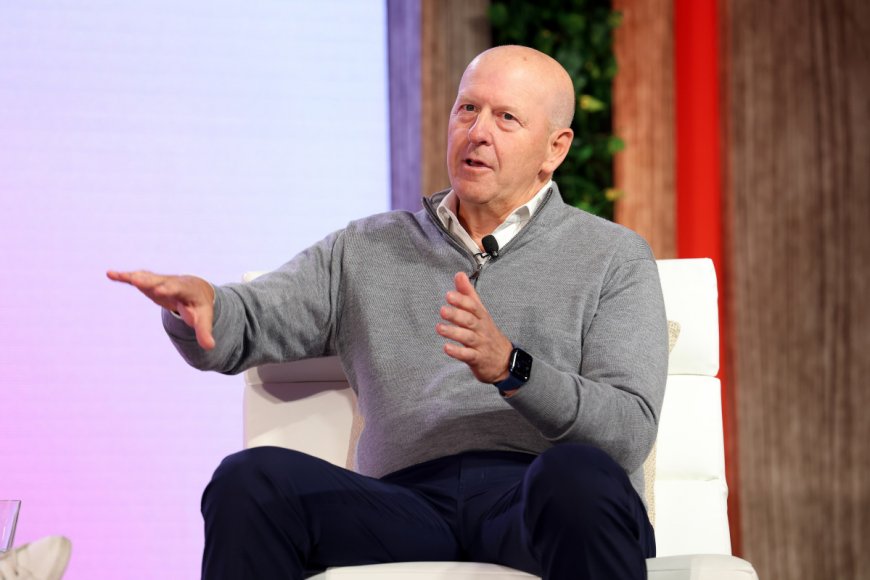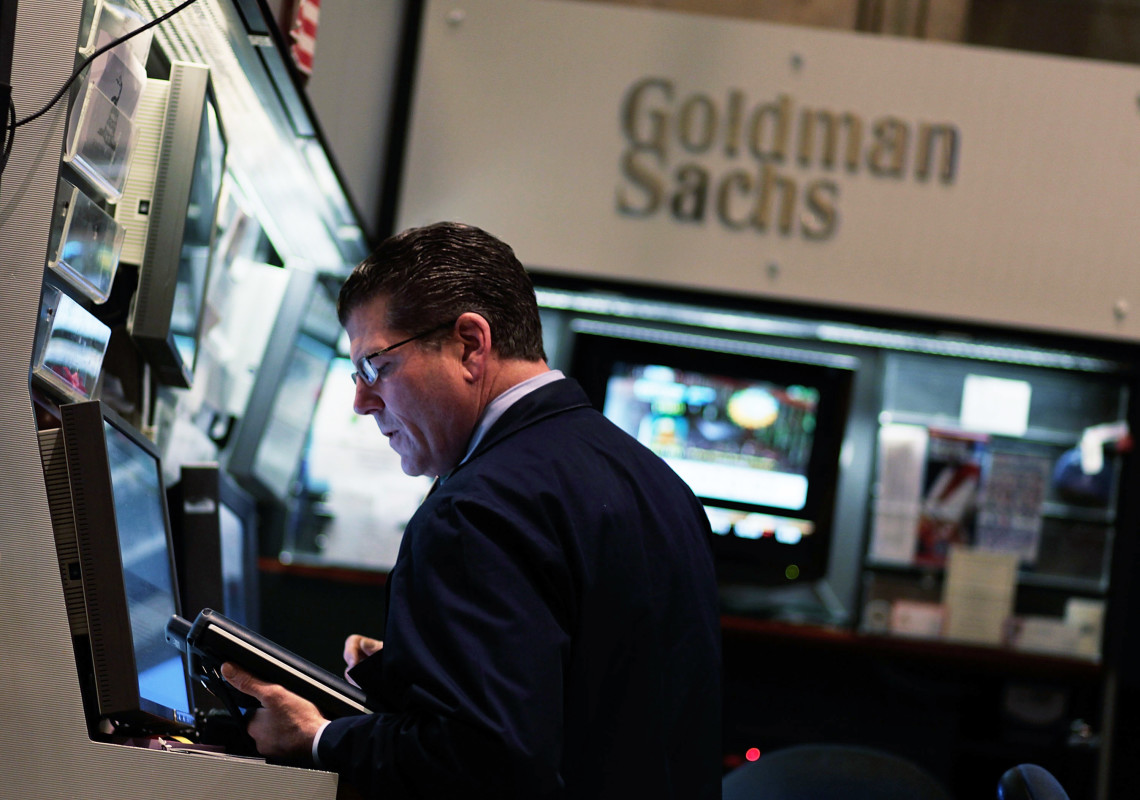Goldman Sachs heavyweights forecast what's next for the stock market, economy
The S&P 500 soared 24% last year. Here's what could happen next.

Goldman Sachs has stumbled in its financial performance over the past 15 years. But its investment/economic research remains among the best in the business.
Back in the day, now-defunct securities brokerage E.F. Hutton used the slogan: “When E.F. Hutton talks, people listen.” The same is true of Goldman Sachs. Its research moves markets.
In a recent webinar, two Goldman Sachs heavyweights gave their outlook for stocks and the economy. Given their influence, paying attention to what they think could happen to the stock market and economy next is wise.
Goldman Sachs' has enthusiasm for economy
Sharmin Mossavar-Rahmani, chief investment officer of Goldman Sachs Wealth Management, emphasized U.S. economic strength.
Related: How you can benefit from the changing interest-rate environment
“Our U.S. pre-eminence investment theme endures,” she said. “It has the largest GDP per capita of any major country.”
She cited our economy’s diversity. “The U.S. has more arable land than any other country, making it the largest exporter of agricultural commodities,” Mossavar-Rahmani said. “The U.S. is the largest producer of oil and natural gas liquids,” too.
Then there’s our technological innovation. For example, she said the U.S. leads the world with 48% of semiconductor sales. It also has the largest, broadest, and most liquid financial markets.
The S&P 500 is expensive, but not every stock is pricey
That economic backdrop is good for corporate profits, so it's good for stocks. However, that doesn't mean every stock is a bargain.
“When it comes to U.S. stocks, they’re “incredibly expensive,” Mossavar-Rahmani acknowledged. “They have been cheaper 90% of the time based on a broad range of metrics.”
As of Jan. 12, the forward price-earnings ratio for the S&P 500 was 19.5, above the 5-year average of 18.9 and the 10-year average of 17.6, according to FactSet.
But valuations aren’t everything, said Brett Nelson, head of tactical asset allocation for Goldman Sach’s Investment Strategy Group.
“We know that past periods that have had similarly expensive valuations still saw substantial subsequent returns,” he said. “That was because earnings proved to be much better than expected. There is a large penalty for exiting equities prematurely based on valuation alone.”
In addition, he said, it’s only the largest stocks that are overvalued. “Keep in mind that most stocks in the S&P 500 are actually reasonably valued,” he maintained.
Many analysts, such as those at Morningstar, believe both small- and mid-cap stocks are undervalued.
Neglected stocks can carry the load
“History actually supports the idea that these remaining shares could potentially pick up the slack if we were to see the expensive shares trade down,” Nelson said.
More From Wall Street Analysts:
- Veteran fund manager picks favorite stocks for 2024
- Analyst who correctly predicted 8% mortgage rates has a new target
- Veteran fund money manager touts 'sleep-well-at-night' stocks
So why does Goldman Sachs think stocks can continue rising in the face of high valuations? It’s “our expectation for interest rates to come down this year,” Nelson said. His group sees the 10-year Treasury yield falling to 3.7% from 3.94% Monday.
Lower rates help stocks by stimulating the economy, which boosts earnings. Falling rates also make stocks more attractive compared to bonds, which offer lower yields when rates fall.
Stocks benefit when the Federal Reserve begins cutting interest rates, and the U.S. economy doesn’t fall into a recession, Nelson said.
“Both of those factors are consistent with our forecast this year. Investors have enjoyed 86% odds of a positive return … when the economy is expanding, as we expect it will this year.” Goldman economists see only a 15% chance of recession.
Earnings will drive returns, the two Goldman execs said. “The earnings trend is very steadily upward unless there's a recession or some kind of a shock like the pandemic,” Mossavar-Rahmani said. And stock prices generally follow earnings in the long run, she noted.
Stocks follow earnings over time, as profitability is the fundamental determinant of a company's strength.
Bottom line: U.S. stocks will generate a 6% return this year, including dividends, Nelson said.
“In our central case, we think the S&P 500 ends the year at about 5,000,” he said. It closed Friday at 4,784.
What is the big takeaway from Goldman Sachs? It's not as bad for stocks as many think.
“The evidence continues to favor remaining invested in US equities,” concludes Nelson.
What's Your Reaction?

























































